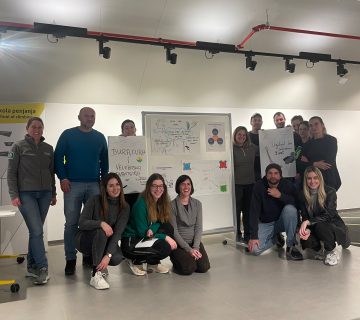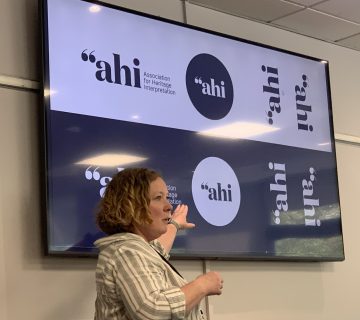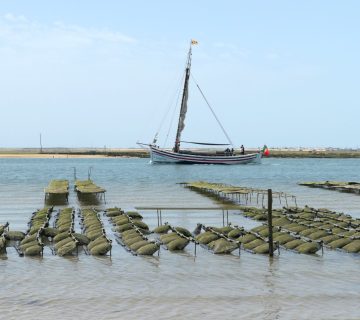A summary of Laia Colomer’s article, Heritage on the move, in the International Journal of Heritage Studies. The article looks at the cross-cultural heritage of global nomads and its implications for heritage studies.
Colomer examines the uses and meaning of cultural heritage among global nomads, focusing on ‘Third Culture Kids’ (TCKs), i.e. people who experienced several international relocations during their childhood. The study is relevant to interpretation in that it argues that such ‘serial migration’ results in a heritage that is not fixed geographically or culturally, making such heritage concepts restrictive to the increasing number of global nomads. From this, we may infer also that heritage management practices based on fixed concepts of heritage are no longer adequate to capture the heritage experience of increasing numbers of people in our societies.
Colomer used online questionnaires sent via social media forums and to known TCKs between June and September 2016. The questionnaires included open-ended and range questions. This survey resulted in 146 returns. The survey was followed up by ten in-depth online interviews with TCKs in autumn 2016 and winter 2017.
The analysis found that TCKs considered ‘global mobility’ and ‘multiculturalism’ more important (74% and 69% respectively) for their identity than religion, sexual orientation, birthplace, passport, gender, school, socioeconomic condition, or current place of residence. 61.4% agreed that local/national heritage helps them establish their cultural identity as global nomads; 46.6% agreed that only national heritage is relevant for that purpose.
Respondents built their identity on ‘the mix of different cultural heritages’ (67%), ‘the cultural heritages around the world’ (47%) and ‘the natural landscape’ (47%). The collective memories of TCKs identified in the survey were, for example, multiculturalism (82%), multiple moves (80%), mobility (78%), globalism (78%), restlessness (65%), rootlessness (55%), and cosmopolitanism (54%).
Colomer concludes that the current focus in heritage studies on elements of the past, framed in terms of national geographies and cultures, is no longer sufficient. She contrasts ‘moored communities’ to global nomads and suggests that the latter are what the Council of Europe’s Faro Convention on the Value of Cultural Heritage for Society calls a ‘heritage community’. Their heritage is ‘cross-cultural’ and created and maintained not by geographical proximity but through networks. To understand this heritage, Colomer argues, we must shift away from ‘essentialist forms of cultures and heritages’ and adopt the concept of a ‘more open process’ of heritage creation and meaning that places people at the centre. Colomer also suggests that cross-cultural heritage requires that non-traditional places and objects be considered heritage.
Colomer, L., 2017. Heritage on the move. Cross-cultural heritage as a response to globalisation, mobilities and multiple migrations. International Journal of Heritage Studies 23 (10), pp. 913 – 927
The Research Team is currently seeking a new Coordinator. In the meantime, please address any queries or suggestions for book reviews to Helena Vičič at Helena.vicic@interpret-europe.net
To cite this article:
Research Team (2018) ‘Cross-cultural heritage demands new thinking’. In Interpret Europe Newsletter 1-2018, 20-21.
Available online:
www.interpret-europe.net/fileadmin/Documents/publications/Newsletters/ie-newsletter_2018-1_spring.pdf




